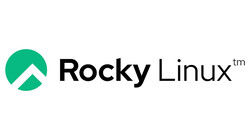Rocky Strikes Back At Red Hat
The world of Linux has seen some disquiet over recent weeks following the decision of Red Hat to restrict source code distribution for Red Hat Enterprise Linux (RHEL) to only their paying customers. We’re sure that there will be plenty of fall-out to come from this news, but what can be done if your project relies upon access to those Red Hat sources?
The Red-Hat-derived Rocky Linux distro relies on access to RHEL source, so the news could have been something of a disaster. Fortunately for Rocky users though, they appear to have found a reliable way to bypass the restriction and retain access to those RHEL sources. Red Hat would like anyone wanting source access to pay them handsomely for the privilege, but the Rocky folks have spotted a way to bypass this. Using readily available cloud images they can spin up a RHEL system and use it to download their sources, and they can do this as an automated process.
We covered this story as it unfolded last week, and it seemed inevitable then that something of this nature would be found, as for all Red Hat’s wishes a GPL-licensed piece of code can’t be prevented from being shared. So Rocky users and the wider community will for now retain access to the code, but will Red Hat strike back? It’s inevitable that there will be a further backlash from the community against any such moves, but will Red Hat be foolhardy enough to further damage their standing in this regard? They’re certainly not the only large distro losing touch with their users.
Updated by: Rianne Schestowitz
-
Trust in software is important for me
There has been, once again, turmoil and drama in FOSS spheres.
First, Red Hat did a trick with their open source code, so that if anyone who uses their GPL rights to share the Red Hat code, loses their subscription. (Well, that's how I understood it. Please give it a read yourself to make sure.)
It's a complicated matter, where complicated opinions bubble on top, at least for me. I do not comment on it since I just do not know enough. I've never used RHEL for anything, anyway.
But it has certainly affected the user trust.
Now, Fedora got recently a proposal to add opt-out telemetry.
Considering Fedora and Red Hat are tied to each other on some level, it again has affected the user trust. Mainly negatively.
Gaining trust is hard, losing it is easy. And it does seem this has been quite a blow to Red Hat and Fedora, but maybe it shows positively in other ways. Who knows.
I shared my opinions on their forum, but yes, I'm cynical enough to think my voice doesn't really matter. I could've been less "sharp-tongued" about it in those posts, but dude im just so tired.
My personal feelings on the matter is that I hope all goes well, but I will try other distro offerings in the meanwhile and see how it goes. I am tired of worrying over such things anyway, so it's easier for me to move.
iTWire:
-
Curbs on RHEL source code: we've reached the third stage of spin
For the uninitiated, as iTWire outlined on 27 June, the second stage is when the person who made the original statement issues a "clarification" to provide the actual meaning of the original statement.
The third stage is when friendly tech writers are invited, or else spontaneously decide, to exonerate the company for its move and blame it on some other entity (the government, the private sector, goblins, the Australian Labor Party, AI, the Loch Ness monster, the Abominable Snowman etc).
Open source writer Steven Vaughan-Nichols has taken up cudgels for Red Hat, blaming IBM, which now owns the Linux firm, for the changes in access to RHEL source code.
InfoWorld:
-
Red Hat kicked off a tempest in a teapot
We’re going back to the future with commercial Linux. In case you missed it, Red Hat apparently got tired of companies masquerading as communities, building Red Hat Enterprise Linux (RHEL) clones through CentOS code and giving nothing back, not a line of code nor a penny. Some have called it freeloading. I called it a bad idea for enterprises to cut off cash to the company they ultimately depend upon to deliver enterprise Linux.
In the wake of Red Hat’s decision, a range of Linux vendors are trying to capitalize on the alleged dissatisfaction with Red Hat’s mood. SUSE’s Dr. Thomas Di Giacomo decided he needed “to shed as much light as I can on the decision and provide reassurance to the community in general,” which translated into a few hundred words talking about how SUSE cares deeply about open source, etc. It didn’t shed any light on Red Hat’s decision and didn’t provide any reassurance to “the community in general” (whatever that means).

